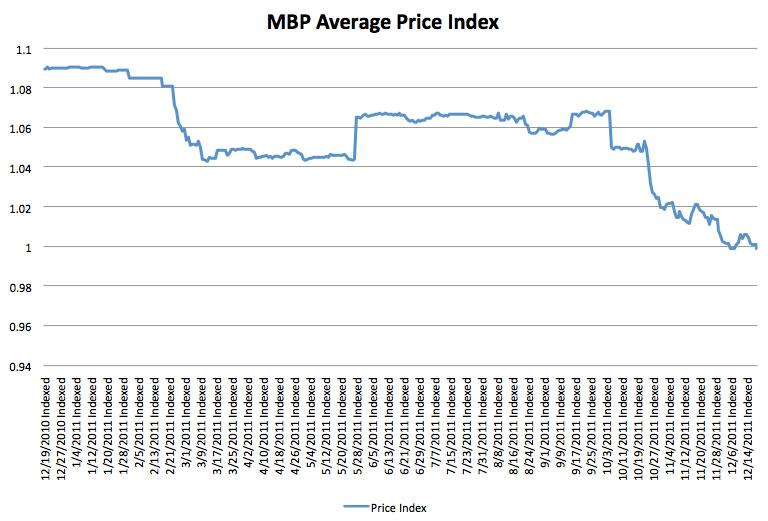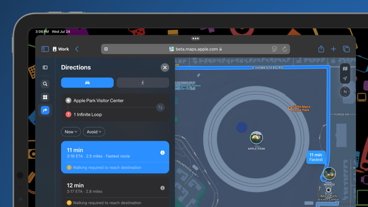Hard drive supply improving after Thailand disaster, minimal effect seen on Apple
New figures from Dynamite Data provided to AppleInsider reveal that prices of traditional spinning hard drives increased between 50 percent and 150 percent in the last quarter as the flooding affected production. In fact, the data shows that e-commerce inventory levels of hard disk drives fell 90 percent in less than one week.
But Kristopher Kubicki, data architect with Dynamite Data, found that hard drive makers have begun to recover from the disaster, as inventory and prices have leveled off and are showing signs of improvement. The data comes from tracking of the 50 most popular hard drive models from online retailers in both prices and inventory.
Kubicki also provided AppleInsider a look at data specifically related to Apple, with prices and inventory of the MacBook Pro lineup throughout 2011. The research showed that pricing on the MacBook Pro actually fell on average 9 percent over the last year, even in the face of the hard drive shortage.
When he began to look into MacBook Pro pricing and availability, Kubicki said he was expecting to see the industry-wide strain on hard drives increase the price or hurt availability of Apple's professional notebooks. "But I really didn't see that at all," he said.
Apple's control of its supply chain is believed to have helped the company weather the hard drive crisis with minimal impact on inventory. The only potential sign of the hard drive shortage affecting Apple came with the company's iMac all-in-one desktop, as custom orders with 2-terabyte hard drives were hit with a lengthy wait time of up to 7 weeks earlier this month. That wait time quickly improved to between 2 and 4 weeks.
As for the rest of the PC industry and its recovery from the floods in Thailand, Kubucki said there is still a long way to go. His tracking of online retailers shows the shortage bottomed out about two weeks ago, and stores are now seeing about double the inventory they had only weeks ago.
 Neil Hughes
Neil Hughes














 Amber Neely
Amber Neely
 Thomas Sibilly
Thomas Sibilly
 AppleInsider Staff
AppleInsider Staff
 William Gallagher
William Gallagher
 Malcolm Owen
Malcolm Owen
 Christine McKee
Christine McKee









3 Comments
What apple choose to do like many companies is to absorb the cost increase on the HDD. Instead of raising pricing which could have a direct impact on how many products they sell they are absorbing the cost, so proof margins will hurt not unit sales. However, the HDD lost about 70M to 90M drives this quarter and the same will be true in Q1. so the real impact will not be seen until next quarter. Also, in the PC industry most all computer being sold in Q4 for the holiday season were actually built in Q3, or most of the part were already on hand by time the floods hit.
Also, because pricing stabilize it does not mean things are improving, it just means the pricing can not go any higher because people will not buy, thus the reason inventory is growing. Another example of an analysis making half informed statements.
I've bought two Western Digital 7200rpm notebook drives, both manufactured in Malaysia/ Thailand/ China (I can't remember), and I liked the performance but one had terrible vibration, the other a year later had a "whirring" (not the clicking or dying hard disk) noise after a while.
Next up: MBA 13" 320GB SSD or BUST
What apple choose to do like many companies is to absorb the cost increase on the HDD.
What's interesting is that they've been doing this for MBA for quite a while now. Looking at SSD prices, getting a MBA with SSD is quite attractive. Plus there doesn't seem to be as many performance doubts as with 3rd party SSDs, there seems to be too many prices and options for 3rd party SSDs.
AFAIK I haven't seen many, if at all, complaints about MBA SSDs degrading in performance or dying out, etc. since even the very first MBA. Have there been issues?